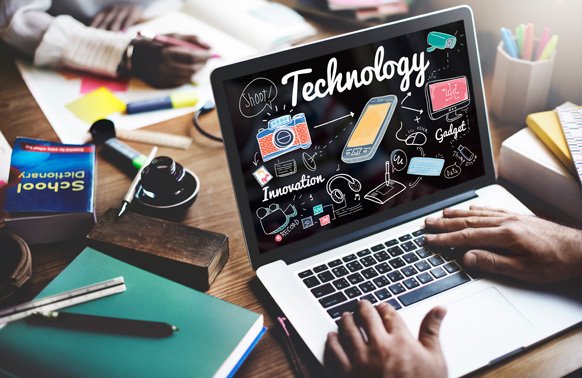Introduction
Digital technology has become a cornerstone of modern society. From smartphones to smart homes, its influence is pervasive. Businesses and individuals alike are harnessing the power of digital technology to enhance efficiency, drive innovation, and stay competitive. This blog explores the current trends, industry impacts, and future possibilities of digital technology.
Understanding Digital Technology
Digital technology encompasses a range of electronic tools and systems that generate, store, and process data. These technologies have revolutionized how we communicate, work, and live.
Definition and Scope
Digital technology refers to electronic devices and systems that use binary code to function. This includes everything from computers and smartphones to advanced robotics and artificial intelligence systems. The scope of digital technology is vast, impacting various sectors and shaping the future.
Key Components
Key components of digital innovations include hardware, software, and networks. Hardware refers to physical devices like computers and servers. Software includes operating systems and applications that run on these devices. Networks, such as the internet, connect these devices, enabling communication and data exchange.
Current Trends in Digital Technology
The digital landscape is ever-evolving, with new trends emerging regularly. Staying updated with these trends is crucial for businesses and individuals to leverage technology effectively.
Artificial Intelligence and Machine Learning
Artificial Intelligence (AI) and Machine Learning (ML) are leading the digital transformation. AI systems can perform tasks that typically require human intelligence, such as decision-making and problem-solving. ML, a subset of AI, involves training algorithms to learn from data and improve over time. These technologies are being used across various industries to automate processes, enhance customer experiences, and drive innovation.
Internet of Things (IoT)
The Internet of Things (IoT) connects everyday objects to the internet, allowing them to send and receive data. This interconnectedness enables smarter homes, efficient supply chains, and enhanced healthcare services. IoT devices, ranging from smart thermostats to connected cars, are becoming increasingly prevalent, transforming how we interact with the world around us.
Blockchain Technology
Blockchain technology provides a secure and transparent way to record transactions. Initially popularized by cryptocurrencies, blockchain is now being explored for various applications, including supply chain management, voting systems, and identity verification. Its decentralized nature ensures data integrity and security, making it a promising technology for the future.
The Impact of Digital Technology on Industries
Digital innovations is reshaping industries, driving efficiency, and opening new avenues for growth. Its impact is particularly noticeable in healthcare, finance, and education.
Healthcare
In healthcare, digital innovations is enhancing patient care and operational efficiency. Electronic health records (EHRs) streamline data management, while telemedicine enables remote consultations. Advanced diagnostic tools powered by AI and ML are improving accuracy and speed, leading to better patient outcomes.
Finance
The finance industry is leveraging digital innovations for secure transactions and efficient operations. Mobile banking apps provide convenience, while blockchain ensures secure and transparent financial transactions. AI-driven analytics offer insights into market trends, aiding better decision-making.
Education
Digital technology is transforming education by making learning more accessible and engaging. Online learning platforms provide flexible education options, while interactive tools enhance the learning experience. AI-powered tutoring systems offer personalized learning, catering to individual student needs.
The Future of Digital Technology
The future of digital technology holds immense potential. Emerging trends and innovations promise to further revolutionize various aspects of our lives.
Predictions and Possibilities
Future predictions for digital technology include advancements in AI, more sophisticated IoT devices, and broader applications of blockchain. These technologies are expected to become more integrated into daily life, offering increased convenience and efficiency. Autonomous vehicles, smart cities, and advanced healthcare solutions are just a few possibilities.
Preparing for the Future
Preparing for the future involves staying informed and adaptable. Businesses should invest in research and development, while individuals should focus on continuous learning. Embracing digital technology and its advancements will be crucial for staying competitive and thriving in the digital age.
Conclusion
Digital technology is a dynamic and integral part of modern life. Understanding its trends, impacts, and future possibilities is essential for leveraging its benefits. As technology continues to evolve, staying informed and adaptable will ensure success in this ever-changing landscape.








